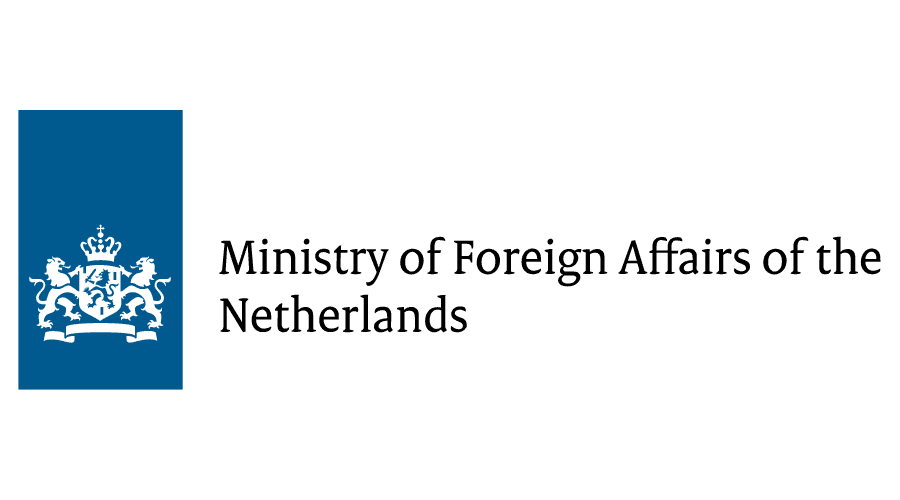UNHCR, the UN Refugee Agency, believes digital technology is one of the most important vehicles for the economic empowerment and self-reliance of refugees – and its significance is only set to increase. However, while the global digital economy has the potential to drive positive change and allow forcibly displaced people to access meaningful livelihoods, it can also pose serious challenges and potential risks.
So, UNHCR and the International Labor Organization (ILO) have embarked on the Promotion, Inclusion and Protection of Refugees in the Gig Economy project. Funded by the Ministry of Foreign Affairs of the Netherlands through its PROSPECTS Opportunity Fund, this project aims to provide refugees and hosting communities with safer and more dignified access to digitally enabled livelihoods.
Aims
Across eight countries in Africa and the Middle East – Kenya, Uganda, Ethiopia, Sudan, Egypt, Jordan, Lebanon and Iraq – UNHRC and ILO are:
- Advocating for evidence-based policy solutions to promote employment opportunities, improve rights at work and mitigate risks for digital workers.
- Enhancing the capacity of forcibly displaced and stateless people, host communities, employers, online work platforms, humanitarian organizations, policymakers, and workers’ associations to engage in the digital economy through tool development and technical guidance.
- Testing innovative solutions to boost safe pathways to decent work and digitally enabled livelihoods, and exploring opportunities to scale successful solutions.
How we work
In alignment with our protection mandate, UNHCR works to identify, understand, and mitigate risks that forcibly displaced people face in the digital economy, and to test innovative models for safe, secure and inclusive digital livelihood solutions.
We do so by:
Learning
- We’re researching emerging risks in the digital economy in order to better advocate and design interventions for the safer digital inclusion of forcibly displaced and stateless people.
- In 2023, UNHCR partnered with 17 Triggers to conduct a series of community-based workshops across all PROSPECTS countries, to understand the opportunities of and barriers to online work, and co-create solutions with refugee communities.
Experimenting
We test innovative models for refugees’ to access dignified work online through targeted pilot projects across the PROSPECTS countries, with a strong focus on providing education and training to boost digital awareness, market-driven digital skills, and online safety, as well as enhancing access to a safe and secure digital infrastructure and workspaces.
These pilots include:
- Lebanon: UNHCR and Anera are equipping refugees and stateless people with digital skills to overcome access barriers. We’re providing awareness sessions and digital risk training to mitigate and manage risks online. Charging stations and internet facilities will also be installed in areas with severe electricity shortages to address connectivity-related risks. The project will enhance our understanding of how the communities we work with and for are already using digital economy platforms, for more targeted interventions.
- Ethiopia: UNHCR and Gebeya have launched a customized digital labour platform to connect businesses to talent within refugee and host communities, creating a more inclusive digital economy. Bespoke training and mentorship will improve the competitiveness of refugee and host communities, enhancing their access to work. Learnings will be generated by documenting the differences between user journey processes of candidates on the specialized marketplace versus the main marketplace.
- Egypt: Leveraging the existing infrastructure and the skills of participants who benefited from PROSPECTS funded community learning centres, UNHCR and Terres des Hommes aim to enhance the safe employability of forcibly displaced people and hosting communities on digital labour platforms by raising awareness of digital risks through targeted campaigns driven by refugee-led organizations and using creative methods to deliver English-language training and certification. To improve access to adequate digital infrastructure for work, UNHCR also plans to establish co-working spaces with women-friendly zones.
- Uganda: UNHCR and Hello World are revitalising a connected community centre in BidiBidi refugee settlement, through an innovative and sustainable community-driven model, and will deliver digital skills training. This pilot aims to enhance the digital skills of forcibly displaced and host communities, as well as providing them with a safe space to pursue online work opportunities.
Transforming
We’re working to change the playing field and open up dignified work opportunities for all by:
- Developing knowledge-sharing networks among digital risk specialists, experienced digital workers, and communities.
- Building partnerships with governments, the private sector, communities and others to ensure updated information on online safety and tools to tackle scams and exploitation.
- Brokering partnerships between the private sector and refugee communities to enhance digital labor opportunities.
- Creating tools to enable governments, humanitarian actors, and the communities we work with and for to collectively build an inclusive digital economy.
Publications
Our PROSPECTS work involves conducting new research while also learning from and building on prior investigations into the intersection of forced displacement, digital livelihoods, and digital risks.
Our partner resources
Key resources on this PROSPECTS Partnership project from our partner, the International Labor Organization (ILO).
- ILO’s PROSPECTS web page
Visit - Digital refugee livelihoods and decent work: Towards inclusion in a fairer digital economy
View - Towards decent work for young refugees and host communities in the digital platform economy in Africa: Kenya, Uganda and Egypt
View - World Employment and Social Outlook 2021: The role of digital labour platforms in transforming the world of work
View - Digitally empowering young people in refugee and host communities: What is possible? A mapping study in Kenya
View
This project is generously supported by the Ministry of Foreign Affairs of the Netherlands through the PROSPECTS Opportunity Fund

Contact
Are you working on the inclusion and protection of forcibly displaced persons in the digital economy and would like to collaborate? Do you have questions or have perspectives to share with us?
Please contact us at [email protected]

